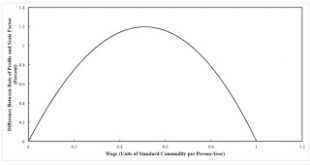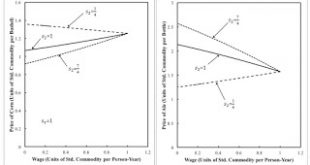"The University [of Chicago] is the best investment I ever made in my life." -- John D. Rockefeller Consider the following people and selected activities: Lewis Brown founded the American Enterprise Institute, in 1938. Jasper Crane cofounded the Foundation for Economic Education, in 1946. Leonard Read cofounded the Foundation for Economic Education, in 1946. Harold Luhnow, even before 1947, directed spending for the Volker Fund. Sir Antony Fisher funded the Institute for Economic...
Read More »2019 Nobel Prize Celebrating The Triumph Of Institutionalism?
[embedded content]Elizabeth Warren Echoing A View Institutionalists Understand This year, the "Nobel prize" in economics went to Abhijit Banerjee, Esther Duflo, and Michael Kremer. They champion empirical economics over theory. Previously, institutionalist economics was described as 'theory without measurement' (Koopmans 1947). Does institutionalist economics parallel the supposed mainstream empirical turn? Although institutionalists, as far as I know, did not have the resources to...
Read More »A Fake Switch Point in an Example With Circulating Capital
Figure 1: A Switch Point and a Fake Switch Point on Wage Curves1.0 Introduction In the analysis of the choice of technique, I typically consider examples of technology with a finite number of techniques. For each technique, I find the wage as a function of the rate of profits. The outer envelope of these curves shows the cost-minimizing technique at each rate of profits (or each level of the wage). Points on more than one wage curve are switch points. This approach is valid when, for...
Read More »The Interest Rate: Prime, Overnight, Or The Rate On T-Bills
As far as I am concerned, cost-push inflation is a manifestation of class conflict between workers and owners. In the late 1970s, Paul Volker and Ronald Reagan took the side of the owners. I am willing to accept that Volker genuinely believed in Milton Friedman's incorrect quantity theory of money. And, since then, workers have been getting a smaller share in increased productivity. Some obituaries of Paul Volker exhibit an understanding of what he did. But I want to talk about my...
Read More »The Cambridge Equation, Expanded Reproduction, and Markup Pricing: An Example
1.0 Introduction I have sometimes set out Marx's model of expanded reproduction, only with prices of production instead of labor values. I assume two goods, a capital good and a consumption good, are produced with constant technology. If one assumes workers spend all their wages and capitalists save a constant proportion of profits, one can derive the Cambridge equation in this model. The Cambridge equation shows that, along a steady state growth path, the economy-wide rate of profits is...
Read More »Elsewhere
David Graeber's review of Robert Skidelsky's Money and Government: The past and Future of Government. A TED talk, by Nick Hanauer, on how complexity economics is replacing "neoliberal" economics. He is especially interested in reciprocity. A 2014 interview by Bill Moyers, of Paul Krugman, on Piketty's book. Mariana Mazzucato, with a talk on the value of everything. She also has a 2013 TED talk. Heinz Kurz on the Cambridge capital controversy. Bertram Schefold on the CCC and his recent...
Read More »Literature Distinguishing Large Corporations And Finance From Competitive Firms
A considerable body of literature has been published, during the last century, arguing that a movement away from competitive markets must be recognized in trying to describe and understanding contemporary capitalism. The literature I am thinking of emphasizes big business, corporations, and finance. Here are some selections, not all of which I have read: Rudolf Hilferding (1910). Finance Capital: A study of the latest phase of capitalist development. Adolfe A. Berle and Means (1932). The...
Read More »The Rate of Profits is Not the Scale Factor
Figure 1: Rate of Profits Unequal to Scale Factor for Rate of Profits This post continues the example in the previous post. I modify the prices equations so that the rate of profits in producing corn is (s1 r̂), and the rate of profits in producing ale is (s2 r̂). The solution to the price equations are: pcorn = 16 [16 + (s1 - s2) r̂]/[204 + (3 s1 + 9 s2) r̂] pale = 32 [10 - (s1 - 3 s2) r̂]/[204 + (3 s1 + 9 s2) r̂] w = 4 [51 - (9 s1 + 5 s2) r̂ - s1s2 r̂2]/[204 + (3 s1 + 9 s2) r̂]...
Read More »An Example Of The Labor Theory Of Value
Figure 1: Variation of Prices of Production with Wages and Markups1.0 Introduction This post documents an example in my working paper, The Labor Theory of Value and Sraffa's Standard Commodity with Markup Pricing. 2.0 Technology Consider a simple economy in which corn and ale are each produced from inputs of labor, corn, and ale. Inputs for unit outputs are shown in the columns in Table 1. Obviously, the units of measure should not be taken serious. Inputs are totally used up in the...
Read More »Keen’s Debunking Economics Most Popular Among Popular Critiques
Table 1: Selected Critiques AuthorBookNumberRatingsMeanRatingMoshe AdlerEconomics for the Rest of Us214Rod Hill & Tony MyattThe Economics Anti-Textbook134Steve KeenDebunking Economics, 1st edition253 to 4Debunking Economics, 2nd edition564 to 5Paul OrmerodThe Death of Economics103 to 4John QuigginEconomics in Two Lessons24John WeeksEconomics of the 1%134 to 5 Steve Keen seems to be the most popular of those writing internal critiques of economics directed towards the common reader. I...
Read More » Robert Vienneau: Thoughts Economics
Robert Vienneau: Thoughts Economics



